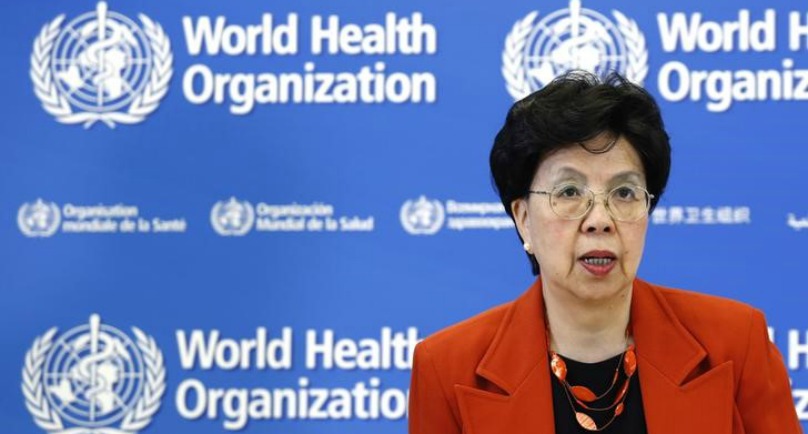Image: World Health Organization Director-General Margaret Chan arrives for the launch of the Global Status Report on Road Safety 2015 at the WHO headquarters in Geneva, Switzerland, October 19, 2015. REUTERS/Denis Balibouse
By Tom Miles
GENEVA (Reuters) – The United States and Saudi Arabia may prepare a vaccine for Middle East Respiratory Syndrome (MERS) to try and head off the next outbreak of the disease, the head of the World Health Organization (WHO) said on Tuesday.
Margaret Chan said Saudi Health Minister Khaled al-Falih was discussing this with U.S. public health officials.
“They communicated and looked at collaboration and to see whether we can, in terms of preparedness, get some vaccines ready in advance of another MERS outbreak,” Chan told reporters.
MERS has killed at least 571 of 1,595 people infected since September 2012, mainly in Saudi Arabia.
There are currently no licensed vaccines available for MERS. In July, researchers trying to develop a vaccine in the United States said they had early signs of success in animal experiments.
Al-Falih, who also heads the Saudi national oil company, was “much more forthcoming” than Riyadh had been in the past, Chan said, and had $70 million for research that would help fill the many gaps in the science of MERS.
The facts behind the coronavirus that causes MERS have been slow to emerge, partly due to a secretive response in Saudi Arabia. But scientists do know that it is similar to the deadly Severe Acute Respiratory Syndrome (SARS), which killed around 800 people worldwide in 2002-2003.
But many questions remained, she stressed: “Is it just in camels? Or in other animals? Is there an available early version of the vaccine, where more work needs to be done? Do we need a vaccine for camels? These are questions we are discussing.”
“We’re making baby steps,” Chan said.
The WHO director-general said she also worried about other diseases including the flu strains H5N1 and H7N9.
The transmission of MERS in Saudi hospitals and a MERS outbreak in South Korea showed that infection control standards were not being adhered to, she said, adding this was one of many examples of countries not sticking to their promises.
Many MERS patients have been health workers who caught the disease when sufferers came to hospital for treatment. Chan contrasted this to the record of the more than 1,000 Chinese doctors who went to treat Ebola in West Africa, none of whom caught Ebola.
“They were using the WHO guidelines on infection control. And yet we see so many countries with infected people who we had to evacuate,” she said.
(Reporting by Tom Miles; Editing by Tom Heneghan)
Copyright 2015 Thomson Reuters. Click for Restrictions.


